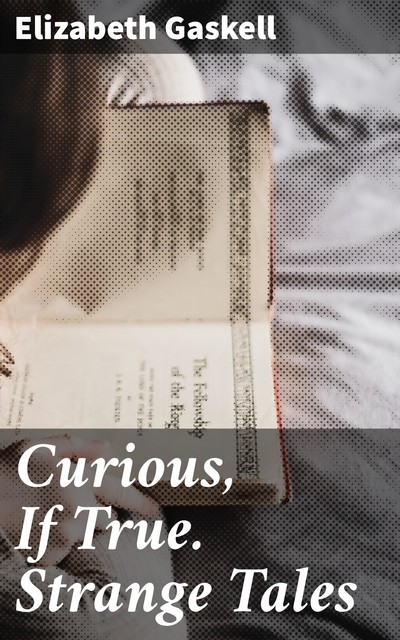Мы используем файлы куки, чтобы Bookmate и наши рекомендации работали лучше.
Подробнее на странице Политика Cookies
Подробнее на странице Политика Cookies
Принять все Cookies
Выбрать cookies
In “Curious, If True: Strange Tales,” Elizabeth Gaskell adeptly weaves a collection of unsettling narratives that reflect the complexities of the human psyche and the supernatural elements intertwined with everyday life. Set against the backdrop of the Victorian era, Gaskell employs a rich, descriptive literary style that invites readers into the peculiarities of her characters' lives. Each tale delves into the mysteries of fate, love, and betrayal, revealing the emotional landscapes that define her characters while also challenging societal norms and expectations. The stories exhibit a meticulous attention to nuance and atmosphere, showcasing Gaskell's capability to blend realism with elements of the gothic and uncanny. Elizabeth Gaskell, a prominent Victorian author and contemporary of Charles Dickens and George Eliot, was deeply influenced by her experiences as a mother and her observations of social inequalities. Her background in a working-class household and her friendships with progressive thinkers shaped her perspective on the intricacies of human relationships and societal issues. This intimate knowledge of diverse social strata is prominent throughout her literary endeavors, culminating in the exploration of both mundane and extraordinary in “Curious, If True.” I highly recommend “Curious, If True” to those who appreciate literature that challenges perceptions while immersing them in the enigmatic. Readers will find Gaskell'Äôs masterful storytelling both captivating and thought-provoking, as she skillfully navigates the boundaries of reality and imagination. This collection not only appeals to fans of traditional ghost stories but also urges reflective insights into the societal issues of her time, making it a timeless work that resonates across generations.
больше
336 бумажных страниц
- Правообладатель
- Bookwire
- Дата публикации оригинала
- 2021
- Год выхода издания
- 2021
- Издательство
- Good Press
Другие версии книги
Уже прочитали? Что скажете?
👍👎
fb2epub
Перетащите файлы сюда,
не более 5 за один раз


